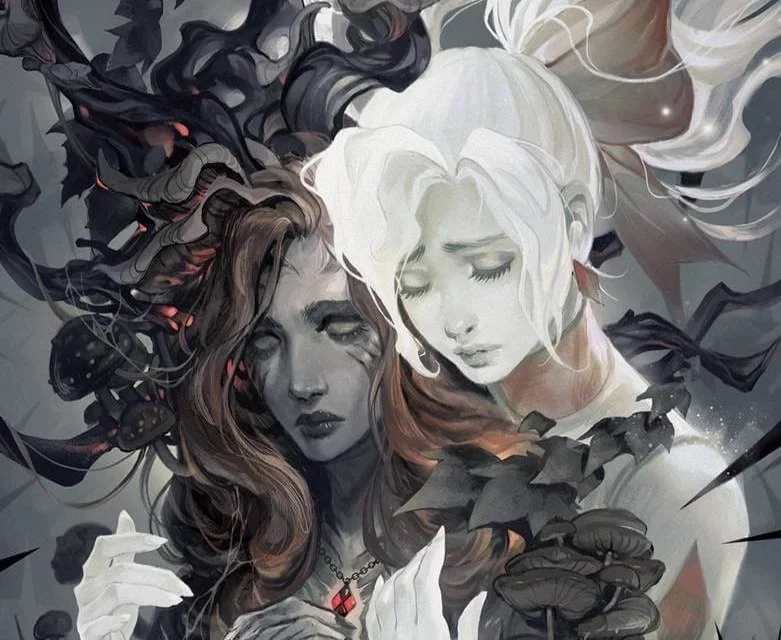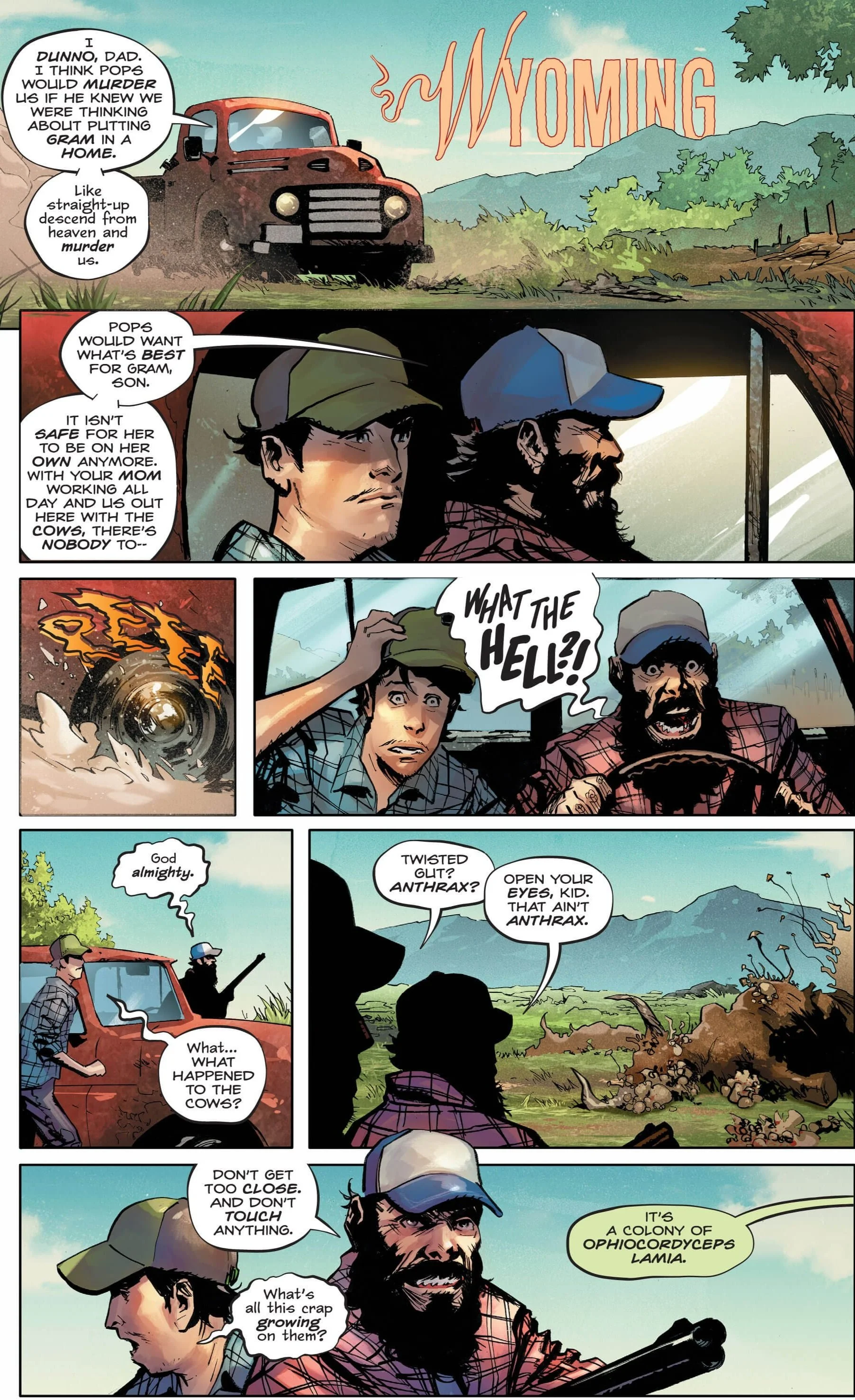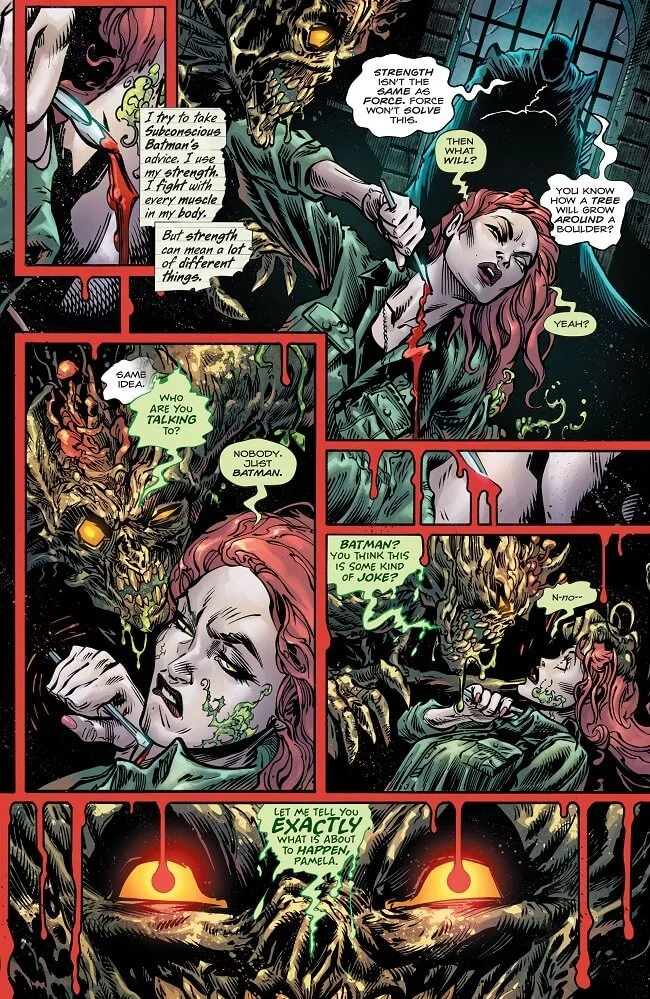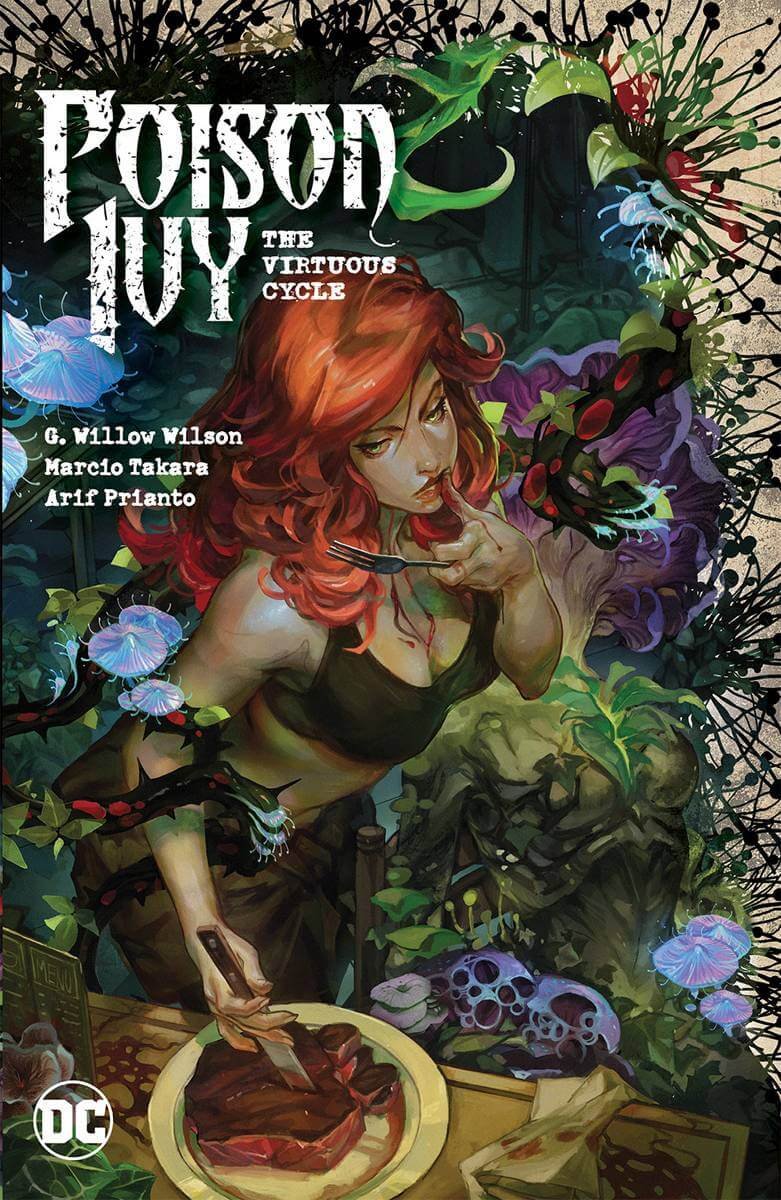Writer: G. Willow Wilson / Penciller: Marcio Takara / Brian Level (Additional Pages, #5, #6) Inker (#5): Stefano Gaudino Colour Artist: Arif Prianto / Letterer: Hassan Otsamne-Elhaou / Collects: Poison Ivy (2022) #1-#6 / DC Comics / HC
Buy comics here, including this series Sign Up For Our Patreon
Review by Paul Dunne
22nd June 2023 (Released: 23rd May 2023)
The Pitch: Pamela Isely has been a lot of things in her life: a living God, a super-villain, an activist, a scientist…
and dead.
In a new body that she didn't ask for and with a renewed sense of purpose, Ivy leaves Gotham and sets out to complete her greatest work: a gift to the world that will heal the damage dealt to it...by ending humanity. But plans have a tendency of changing, and Ivy realises life isn't just black and white and all humans aren't evil - except for the ones destroying the Earth with corporate greed. And Ivy will make. Them. Pay.
I have a theory that isn't too popular among my friends. It's probably wrong, but it sits with me and I can't shake it. In fact, it's so bleak, that often I'll have to purposely force myself to switch my thoughts to another track, just so I don't get lost in the idea and become depressed. It goes like this: given the levels of political corruption, the self-serving nature of people, and the amount of damage we've already done to the Planet, our food chain, to the very air...
The world is, essentially, over.
Obsolescence in discussion.
Sure, we'll carry on. Go to work, go to university, go home. Fuck, drink, eat. Have experiences. Talk, love, hate. Make plans. But deep down, resonating in me like a bell tolling in the deep is the feeling that all we're really experiencing is the end. It's just happening very slowly, convincing us we have time. I played my part, no matter how much food I compost and how many times I take my own bags to the supermarket, no matter how much I recycle and reject single-use plastics. I killed Planet Earth, along with all of you guilty sons-of-bitches. And in Poison Ivy, I may have found a kindred spirit. Of course, that's a bleak outlook (for those of you that have met me... Surprise!). Deep down, I always hold out hope. I'm just not very good at showing it. I believe in built-in-obsolescence. Ivy believes it, too. She just wants to accelerate the process and scorch not the earth, but the people on it. Kill the people, save the planet. In the opening pages of the book, a father and son discuss putting an elderly family member in a home... A new generation preparing to shuttle someone off into obsolescence... Just as Ivy plans to do with people. It's a nice touch that hints at the quality of writing you're going to get in the series.
Scorching people, not the earth.
Throughout this first volume, Wilson employs a fine sense of metaphor. Ivy doesn't just want to wipe other people off the face of the earth. She too has her own built-in obsolescence. She plans to die once her work is done. Wilson and Takara find a new form for the medium: the comic as a suicide note. It's grim but thematically sound as they let this idea bleed out to the edges of the book. What happens when a supervillain decides to commit suicide? How do they handle the cancerous nature of their own abilities? Ivy has to face another countdown, too. She knows the Bat family will catch on eventually and pursue her. It's to Wilson and Takara's credit that when Bat-intervention does finally occur, it's in the most unexpected way possible. Ivy's biggest conflict is with herself, though. She goes back and forth on the idea that humanity must fade, struggling to decide if she's arsonist or firefighter. There's something in Ivy that wants humanity to survive. Somehow, our humanity might nurture hers. But this also means she's ripe for mental struggle, not being of sound mind or body. She's walked away from Harley, citing betrayal. Even though that betrayal saved her life. In a heartbreaking sequence, Ivy's mental projection of Harley watches her make love to another woman, all the while sitting there with a smile on her face. Ivy's dreams become like psilocybin-influenced visions of her victims. Things grow from the liquid pools of her subconscious. As in her physical life, she is being poisoned by her own method of murder. But even as she erodes, Ivy descends into true eco-terrorism. It's scary to think how weak the infrastructure built up around our commerce-led lives is. Ivy's plan to exploit those weaknesses is devastatingly simple. But she is still an agent of change for herself as well as the world. Like Ivy, the Suicide note transforms from a declaration of intent to Epistolery affirmation, a love letter... But not before The book becomes a horror story, where those hungering for solace instead eat their tormentors. Cannibalism exists even among plants.
The horrors of nature.
Wilson gives us a complex world of difficult choices. Ivy is emotionally fragile, even unstable, but never unbelievable. She feels cheated, broken, hurt. And hurt people hurt people. It's not a cliche, but a truism. Wilson's talent writer is in evidence all over this. She takes the prejudices against women and reveals it for the ignorance it is, whilst shattering more ignorance about the fight for a cleaner, better world. Takara has a beautiful, diffused line that keeps the Motion alive. His images sell the horror of the fungus, spores blooming from within the fragile mammalian bodies, rendering them into something new. Dead, yet alive again. He captures the beauty and the threat inherent in nature. Brian Level, who guest-pencils additional pages on the final two issues of the arc, moistens the horror elements as Ivy’s true tormentor reveals himself. Prianto's colours do a spectacular job of lighting the sun-kissed landscape Ivy moves through, but also reminding us that bright colours in nature are sometimes a warning. That green is the colour of sickness as well as verdancy. Otsamne-Elhaou's letters are reliably excellent, essaying the sound that could be a light breeze or a whispering voice, telling you to do dark things... This is a book for those of you that see the world not just in luminous colours, but in greys, too. Give a character room to grow and you may get roses as well as thorns.
Buy the first six issues of this series in our webshop. Poison Ivy Vol. 1: The Virtuous Cycle HC is available here.





